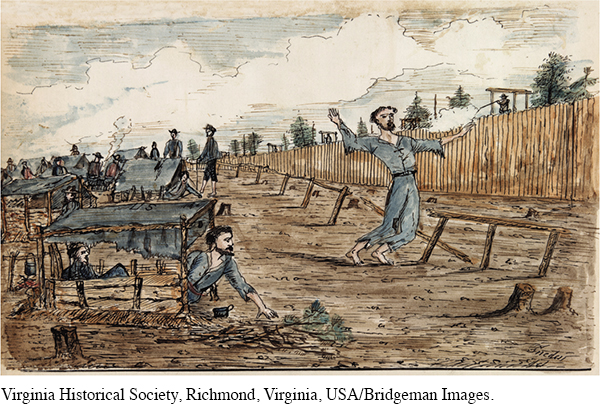The American Promise: Printed Page 431
The American Promise, Value Edition: Printed Page 393
The American Promise: A Concise History: Printed Page 452
Grant Takes Command
In September 1863, Union general William Rosecrans placed his army in a dangerous situation in Chattanooga, Tennessee, where he had retreated after defeat at the battle of Chickamauga (see Map 15.3). Rebels surrounded the disorganized bluecoats and threatened to starve them into submission. Grant, now commander of Union forces between the Mississippi River and the Appalachians, arrived in nearby Chattanooga in October. Within weeks, he opened an effective supply line, broke the siege, and routed the Confederate army. The victory at Chattanooga on November 25 opened the door to Georgia. In March 1864, Lincoln asked Grant to come east to become the general in chief of all Union armies.
The American Promise: Printed Page 431
The American Promise, Value Edition: Printed Page 393
The American Promise: A Concise History: Printed Page 452
Page 432
In Washington, General Grant implemented his grand strategy for a war of attrition. He ordered a series of simultaneous assaults from Virginia all the way to Louisiana. Two actions proved particularly significant. In one, General William Tecumseh Sherman, whom Grant appointed his successor to command the western armies, plunged southeast toward Atlanta. In the other, Grant, who took control of the Army of the Potomac, went head-
The fighting between Grant and Lee was particularly savage. At the battle of the Wilderness, where a dense tangle of forest often made it impossible to see more than ten paces, the armies pounded away at each other until approximately 18,000 Yankees and 11,000 rebels had fallen. At Spotsylvania Court House, frenzied men fought hand to hand for eighteen hours in the rain. One veteran remembered men “piled upon each other in some places four layers deep, exhibiting every ghastly phase of mutilation.” (See “Making Historical Arguments: Why Did So Many Soldiers Die?”) Spotsylvania cost Grant another 18,000 casualties and Lee 10,000. Grant kept moving and attacked Lee again at Cold Harbor, where he suffered 13,000 additional casualties to Lee’s 5,000.
The American Promise: Printed Page 431
The American Promise, Value Edition: Printed Page 393
The American Promise: A Concise History: Printed Page 452
Page 433Twice as many Union soldiers as rebel soldiers died in four weeks of fighting in Virginia, but because Lee had only half as many troops as Grant, his losses were equivalent to Grant’s. Grant knew that the South could not replace the losses. Moreover, the campaign carried Grant to the outskirts of Petersburg, just south of Richmond, where he abandoned the costly tactic of the frontal assault and began a siege that immobilized both armies and dragged on for nine months.
Simultaneously, Sherman invaded Georgia. Skillful maneuvering, constant skirmishing, and one pitched battle, at Kennesaw Mountain, brought Sherman to Atlanta, which fell on September 2. Intending to “make Georgia howl,” Sherman marched out of Atlanta on November 15 with 62,000 battle-